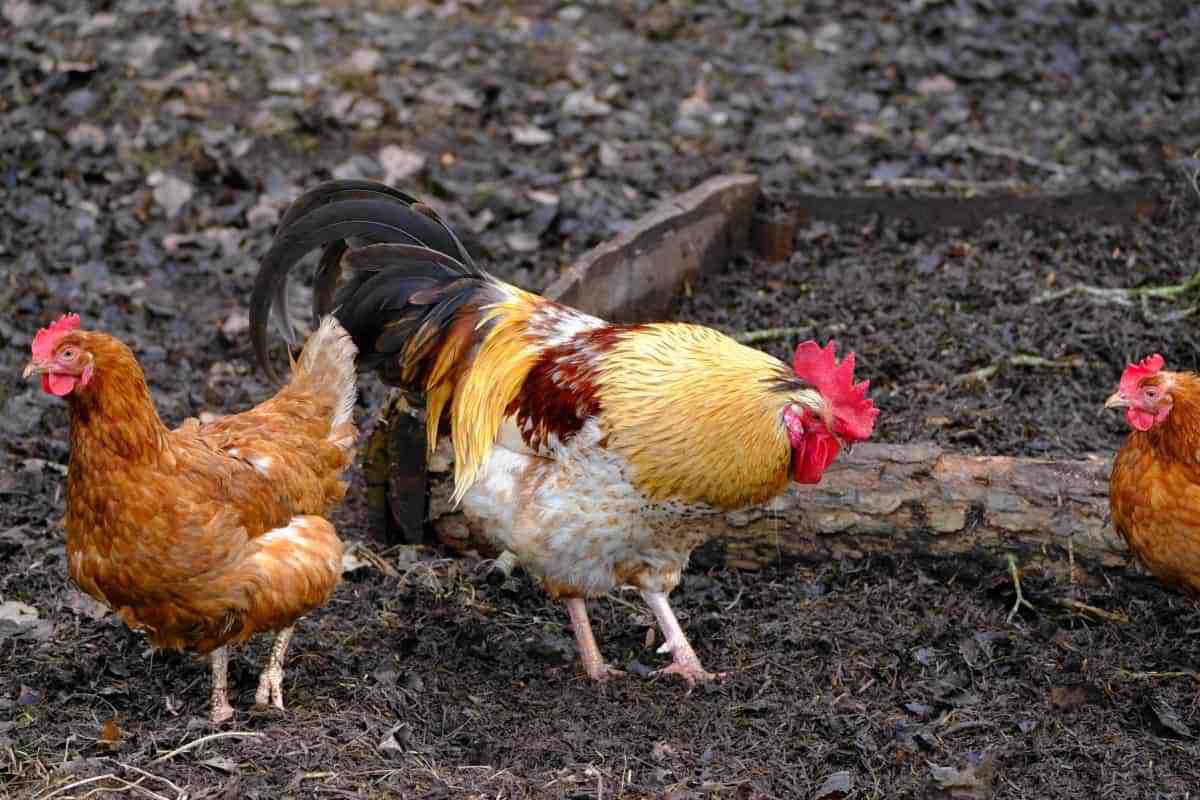Manure has been used for centuries as a fertilizer, and is still used to this day on some organic farms. Even though many farmers have switched to using chemical fertilizers for their cost and ease of use, manure adds a lot more than just NPK (nitrogen, phosphorus, and potassium).
If you want to improve poor soil or just enhance the growth and yields of your vegetables, manure is one of two excellent soil amendments, the other being compost. But you should know about the different kinds of manures, how to apply them, and the difference between fresh and composted/aged manure before you load up on it.
On this page:
Does Manure Help Vegetables Grow?
Manure helps vegetables grow by providing a continuous release of nutrients, including minerals, and also building up the structure of soil with organic matter.
Composted manure is an especially good slow-release fertilizer that won’t burn plant roots. Most fresh manures tend to be too “hot” to use directly. Generally, manure is higher in nitrogen and lower in phosphorus, which is perfect for leaf and stem growth. However, manure also has trace minerals like iron, magnesium, manganese, and copper, all of which are important for plant growth in small amounts.
Nutrient (NPK) Ratios of Commonly Used Manures
| Animal Manure | NPK (rounded average) | Additional Notes |
|---|---|---|
| Cow (Dairy) | 0.6-0.3-0.6 | |
| Cattle (Steer) | 0.9-0.3-0.7 | |
| Horse | 0.5-0.2-0.4 | Has the highest amount of weed seeds unless hot composted first |
| Chicken | 2.7-1.3-1.5 | Avoid using fresh chicken manure; aged minimum of 2 months, recommended 6-12 months before using |
| Rabbit | 1.2-0.9-0.6 | Can be applied immediately without composting or aging |
| Goat | 1.0-0.3-1.0 | |
| Sheep | 0.9-0.3-0.8 |
What Does Manure Do to the Soil?
Manure helps build up your soil by increasing the total amount of organic matter, improving the structure of your soil so that it can hold water and nutrients, and releasing nutrients into the soil as it continues to break down.
The reason farmers and gardeners alike add manure to the soil is to use it as a fertilizer. As an organic fertilizer, manure will continue to break down after being applied, releasing plant-available nutrients into the soil.
However, manure also builds up the structure of soil, enhancing its physical properties such as the ability to hold onto nutrients and water.
Which Is Better: Manure or Compost?
Whether to go with manure or compost depends on your circumstances and budget.
For most home gardeners, well-balanced compost, rabbit manure, or aged chicken/cow manure are all equally good as soil amendments. However, if you are looking to use them to make the bulk of your garden beds, such as filling a raised bed, compost is more economical and safer to use.
Benefits of Manure
There is a reason why manure is still used by organic farmers. It’s easily accessible, is sustainable, and it adds structure and nutrients to the soil. Manure is even being used to improve fertility of nutrient-poor land naturally through sustainable grazing practices.
- improves soil structure, water and nutrient retention
- a gentle, slow-release fertilizer (if aged)
- readily available in many stores
- can sometimes be found very cheaply as a by-product of livestock rearing
- is a continuous and sustainable source of fertilizer if you’re raising your own animals
What Are the Disadvantages of Manure?
Since manure is animal waste, there are some downsides to using it. Most of the disadvantages are for fresh manure; aged manure is one of the best soil amendments you can add to your garden.
- nutrient content varies greatly based on animal and diet
- fresh manure is nutritionally very concentrated and can burn plant roots and can contaminate vegetables with E. coli
- fresh manure is not recommended for vegetables, unless applied at least 120 days (4 months) before harvest
- some manures (especially horse manure) contain undigested weed seeds that will sprout in your garden
- aged or composted manure can be more expensive than fresh manure
- if the animal grazed on pastures sprayed with broadleaf herbicides, the manure can harm your broad-leafed vegetables (e.g. most vegetables except corn, wheat, and other grasses) – always get manure from a reputable source
Benefits of Compost
Compost is an ideal substitute for manure and the first choice of most gardeners. Not only is it more commonly found than manure, it has some benefits that manure doesn’t, such as the ability to be applied at any time on any vegetables.
- improves soil structure, water and nutrient retention
- a gentle, slow-release fertilizer
- universally available at nurseries and hardware stores
- is safe to use on all vegetables at any time of the year
- tends to have a lighter texture than manure, improving soil aeration
- can be easily made at home using food scraps and biodegradable household items

Which Vegetables Do Not Like Manure?
There are two types of vegetables you should be careful using manure on: root vegetables and short-season leafy greens. Root vegetables are sensitive to the higher nitrogen content of manure and both root vegetables and short-season crops that grow low to the ground can be more easily contaminated unless you use composted manure.
Manure’s relatively high nitrogen content can cause root vegetables to end up misshapen, forked, or suffer from scab. Furthermore, if using fresh manure, there is a chance you could contaminate your vegetables with E. coli or other coliform bacteria. Composted/aged manure does not have this problem.
What Is the Best and Worst Manure for a Vegetable Garden?
All manures have their pros and cons, so there is no one best manure, but some are better suited for home gardeners than others.
Best Fresh Manure: Rabbit Manure
Rabbit pellets are the best manure that can be used fresh. Rabbit manure does not need to be aged or composted before using and won’t burn your plants’ roots. The main disadvantage is that it’s not easy to find in stores. You can always try Facebook Marketplace or some other online classified ads to find local rabbit farmers selling manure. Rabbit manure has an ideal NPK ratio for fruiting vegetables, with higher phosphorus.
Best Composted/Aged Manure: Cow/Chicken Manure
Both cow and chicken manure, if aged for at least several months, are extremely beneficial in the garden. Fresh chicken manure is often too “hot” to use, and fresh cow manure can also be a little harsh on plant roots. Aging manure helps mellow out the nutrient profile while also reducing levels of harmful bacteria that can contaminate your vegetables. Both cow and chicken manure are relatively easy to source as well and are not as expensive as some other manures. Chicken manure has an ideal NPK ratio for fruiting vegetables, with higher phosphorus.
Worst Manure: Horse
Horse manure can be fantastic in the garden but only if it’s composted. Horse manure has more undigested seeds which will sprout en masse wherever you spread it. For this reason, you should avoid using fresh horse manure unless you don’t mind dealing with extra weed pressure. Hot composting horse manure will kill the weed seeds.

Is Composted Manure Safe for Vegetable Gardens?
Composted manure is much safer to use in vegetable gardens than fresh manure, and can be applied safely. If you want to take an extra measure of safety, apply composted manure at least 120 days (4 months) before your expected harvest.
The reason composted manure is safer to use is because the process of composting kills off many harmful pathogens that could contaminate your vegetables. In addition, through composting or aging, manure also becomes safer for the plants themselves and won’t harm plant roots.
The 120-day recommendation comes from the USDA’s guidelines [PDF] on applying fresh manure.
Is Chicken Manure Better than Cow Manure?
Both chicken manure and cow manure are excellent soil amendments, however chicken manure is a stronger fertilizer. In fact, fresh chicken manure is considered too “hot” to add to soil and can burn plant roots if used directly. Chicken manure also has a better NPK nutrient ratio for fruiting vegetables compared to cow manure.
Since chicken manure has a relatively high amount of phosphorus compared to other manures, and phosphorus is important for flowering and fruiting, chicken manure may be better for fruiting vegetables like tomatoes, cucumbers, peppers, etc.
Whether using chicken manure or cow manure, it’s recommended to use composted or aged manure, which is more gentle for plants.
Does Manure Turn into Soil?
Manure won’t turn into soil, but will add organic matter to soil. However, well-aged or composted manure will look very similar to soil and has little to no smell compared to fresh manure.
The reason manure (and compost, for that matter) doesn’t turn into soil is because soil is an aggregate of both organic matter and inorganic sand, silt, and clay. Manure is almost pure organic matter, so it can’t technically be soil. However, it will add organic matter to the soil and once it fully breaks down it will be indistinguishable from other organic matter in the soil.
How Much Manure Do I Add to Soil?
How much manure to add to your soil depends on what type of manure you’re using.
For fresh manure, you can add up to 7.5 lbs of fresh cow manure or 2 lbs of fresh chicken manure per 10 square feet of garden space. If the manure is composted (which is recommended for most vegetables) you can add up to 20 lbs of composted cow manure or 7 lbs of aged/composted chicken manure per 10 square feet. However, for home gardens, spreading a thin layer over the top of your soil and tilling or raking it in is more than enough to see benefits.
It is highly recommended if growing vegetables that you either use composted/aged manure or add fresh manure at least 4 months before harvest.
Can You Put Too Much Manure in Your Garden?
Yes, if you go above recommended application rates, it’s possible you could overfertilize your soil with manure. This is especially true if using fresh manure.
Chicken manure is the worst offender; it’s always recommended to age chicken manure for at least a few months before applying unless you’re only adding a small amount. Aged or composted manures are much gentler and can be safely applied in larger amounts.
How Long Does Manure Last in Soil?
Manure will continue to break down and release nutrients for years after applying it to your garden, but much of those nutrients will be released within a year.
If you want to regularly incorporate manure into your garden, you can apply it once a year, either in the fall or very early spring before planting.
What Can You Use Instead of Manure?
There is a wide variety of choices for manure alternatives if you don’t want or can’t use manure in your garden.
The most economical substitute for manure is regular compost. You can get compost in bulk and it’s much less expensive than other alternatives.
There are many different types of compost to use, including vermicompost and mushroom compost, but these can sometimes be prohibitively expensive if you need to use a lot of it. Regular, well-balanced compost will work in any garden for any budget.

Which Is Better: Cow Manure or Horse Manure?
In terms of adding nutrients and building good soil structure, both cow manure and horse manure are equally good. However, horse manure generally has more undigested weed seeds than cow manure, so be aware that you will end up dealing with more weeds after applying horse manure.
While cows and horses digest food differently, they and their diets are similar enough that the NPK values of cow manure and horse manure are comparable, with both having more nitrogen and less phosphorus.
Similarly, cow manure and horse manure both continue to break down after being added to the soil, and over time will leave rich humus and carbon to build up the structure of the soil, reducing compaction and increasing drainage and water retention.
However, horse manure has more partially digested plant matter, which means it also has more weed seeds that will sprout in your garden. The exception is hot composted horse manure. Hot composting will kill off most weed seeds in horse manure. So, if you have a hot compost pile, horse manure is an excellent addition that has all the benefits of manure without the weeds.
Related Questions About Using Manure in the Garden
Why Do Farmers Use Fertilizers Instead of Manure?
There are a few main reasons farmers use chemical fertilizers instead of manure: chemical fertilizers are often cheaper, are easier to transport and store, and do not carry the risk of contamination on vegetables.
The allure of chemical fertilizers can be summed up as convenience. They can be mass produced and purchased in bulk, and in their concentrated form they are much easier to ship to farms and be kept in storage until needed. Manure takes up a lot of space.
Another issue with manure, especially fresh manure, is that it can still harbor harmful bacteria which can contaminate vegetables. Because of this risk, the USDA [PDF] recommends applying fresh manure at least 120 days (4 months) before harvest.
Chemical fertilizers offer other benefits like being able to release nutrients immediately, while manure can only break down slowly over time. It’s also easier to apply liquid fertilizers with simple irrigation tubes.
Can You Earth Up Potatoes with Manure?
You can earth up potatoes using aged, composted, or otherwise well-rotted manure. However, using fresh manure to hill up potatoes is not recommended due to high levels of nitrogen and the presence of harmful coliform bacteria.
Manure is an excellent amendment to any garden but when used as the main growing medium it can cause issues, especially if it’s fresh manure. Most fresh manures (except rabbit manure) are very high in nutrients and should be applied in smaller amounts. The high nitrogen content of fresh manure can cause potato scab. At the same time, fresh manures can contaminate your potatoes with harmful bacteria.
Aged manure does not have these problems – the aging process makes manure less harsh on plant roots and also reduces chances of contamination.
Can I Plant Directly into Composted Manure?
If manure is so good for plants, surely you could plant your vegetables directly into composted manure, right? Well, it depends.
You can plant vegetables directly into well-aged, composted manure. However, root crops (carrots, potatoes, etc.) may have lower quality harvests due to the higher nitrogen content. Ideally you should top dress with manure or till into the top few inches of soil.
Root vegetables tend to show forking (carrots, long radishes) or get scab (potatoes) which stems mainly from the high amount of nitrogen in manure. In this case, it’s better to simply amend your soil by top dressing or mixing the composted manure into the top layer of soil.
All other vegetables should grow well when planted directly into composted manure.
Does Cow Manure Make Soil Acidic?
There is some debate over the effect of manure on soil pH, and it depends on the type of manure, whether it was aged or not, and the diet of the animal.
Fresh cow manure tends to be more acidic and may lower soil pH over time due to higher nitrogen content. However, aged or composted cow manure is closer to a balanced, neutral pH.
If top-dressing or adding low to moderate amounts of cow manure as a soil amendment, it should not make a significant impact on soil pH.
Is Bagged Manure Any Good?
Bagged manure is perfectly acceptable for the garden, but make sure it’s appropriate for vegetables or fruits (or whatever you are growing). And ideally, you want composted manure.
Fortunately, most bagged manures are composted, but always double check. Fresh manures are too strong to be directly applied except sparingly and should be aged for several months to reduce the chance of burning your plants’ roots.
